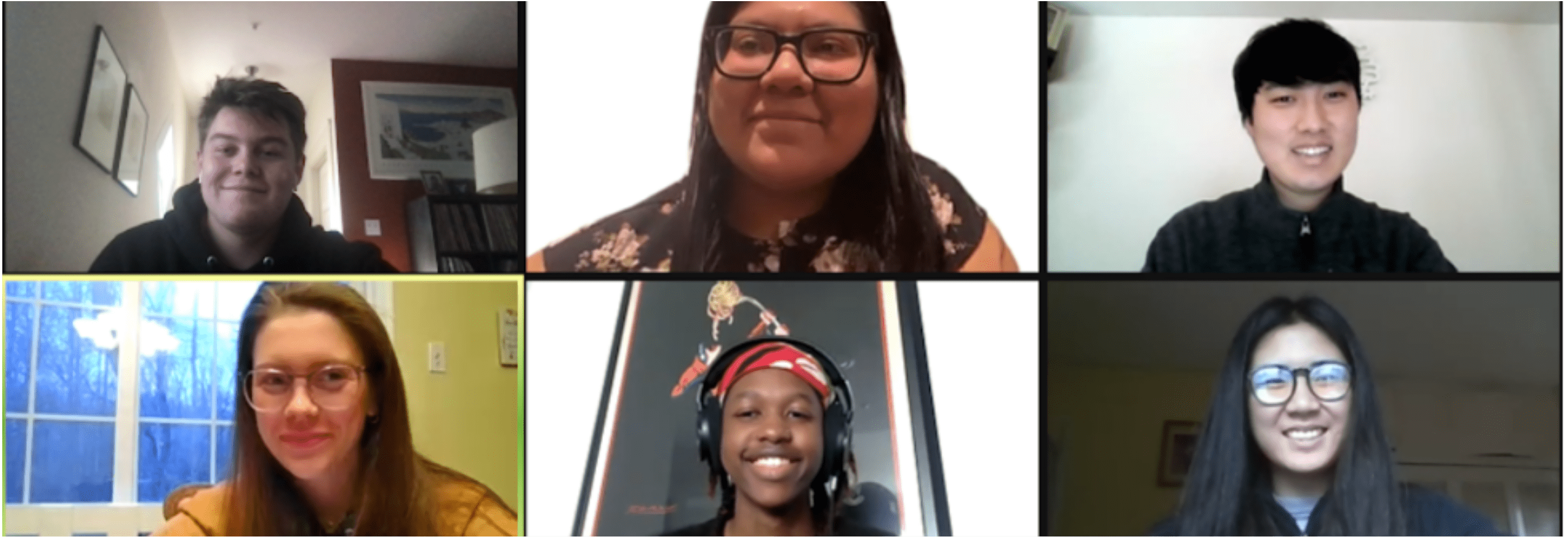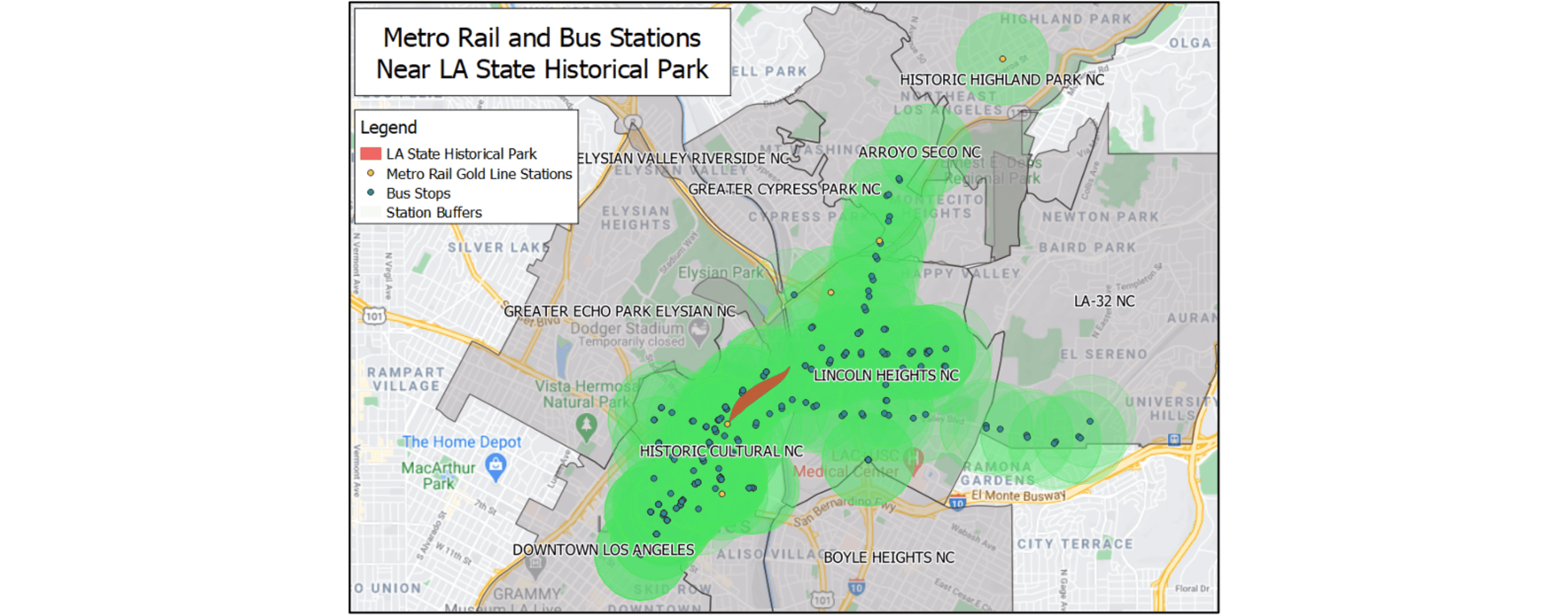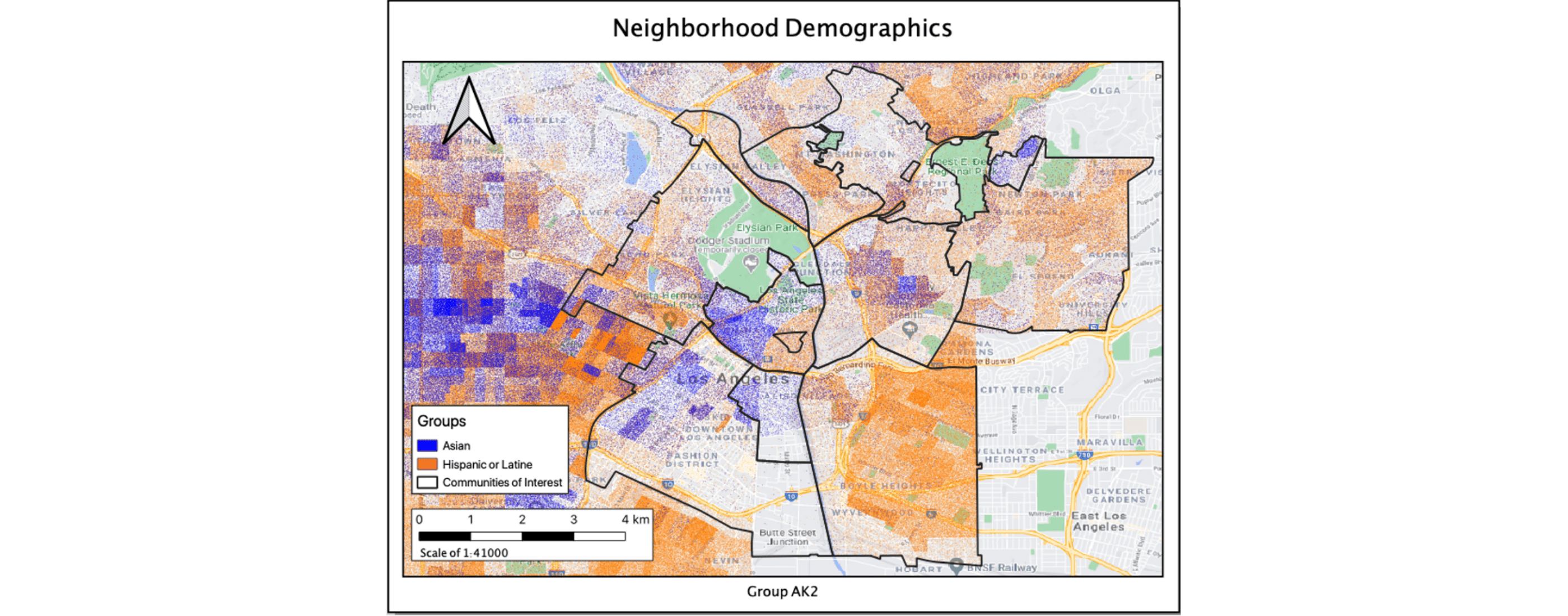By Catherine Bubser and Michael Gatheru
Bubser studies environmental science with a concentration in environmental systems and society at UCLA. She is passionate about conservation and aims to study environmental law in the future. Gatheru is graduating UCLA this year with a degree in environmental science and plans to pursue a career in environmental and urban planning. Other team members included Karina Rodriguez, Julia Lok, Minseok Han, and Douglas Wright.
During the COVID-19 pandemic many of us have sought relief in parks. Spending time in nature provides so many benefits for our health and well-being. Parks are one of the easiest ways to obtain these benefits.
We both study environmental science at UCLA. And this year, we have been working with one of our professors, Jon Christensen, and a diverse team of fellow students on a “Route to Parks” project supported by Parks California and the Los Angeles River State Park Partners.

Our focus is on promoting public transportation routes to Los Angeles State Historic Park in the heart of downtown. We started with some basic facts. We know from national surveys that the average trip people will take for recreational purposes on public transportation is 11 minutes without a transfer and people will walk about a half-a-mile.
So, we created a map displaying half-mile buffers around Metro stations and bus stops within an 11-minute ride of the park.

We then mapped the demographics of these 10 neighborhoods and found that many of the residents are low-income, people of color who speak a language other than English at home. This enabled us to visualize the audience for a strategic communications campaign, including the fliers below, as well as posters, a brochure, and social media posts, which we wrote and designed for our class on environmental communications.

We used U.S. Census data to identify the languages that are commonly used in households in these neighborhoods. We then produced fliers in multiple languages promoting public transportation as a convenient, easy way to get to the state park and enjoy the benefits of time spent outdoors. Luckily, our team included students fluent in Spanish, Chinese, and Korean, in addition to English!

Professor Christensen’s environmental communications course focuses on the importance of nature for human health, as well as the inequities in access to the outdoors in California. We learned that scientists have found that a dose of roughly 17 minutes a day or two hours per week outdoors in nature is good for all of our mental and physical health and well-being. But according to the Trust for Public Lands’ ParkScore ranking 55% of Angelenos do not have a park within a half-mile walking distance of their hopes.
So, we sought to create resources — digital and print materials as well as maps of the neighborhoods and local markets where they could be displayed — to help disadvantaged communities understand that they do have nearby access to a great outdoor resource via a short trip on public transportation: Los Angeles State Historic Park.
We are working this summer to further develop this model for other state and regional parks to provide more equitable access to the benefits of nature via public transportation. If you are interested in learning more about our work, please contact Professor Christensen at jonchristensen@ioes.ucla.edu.
